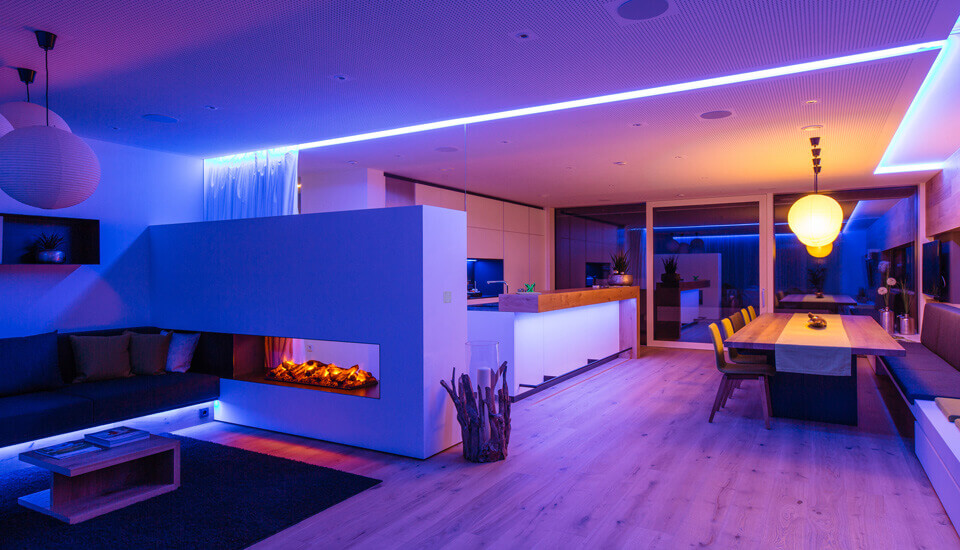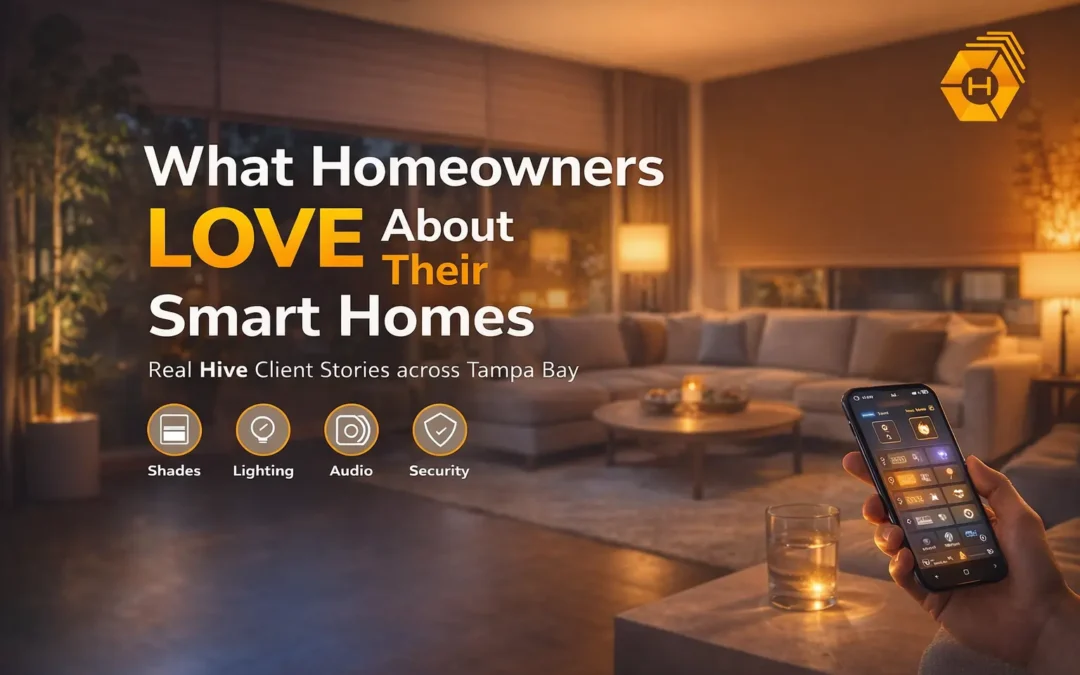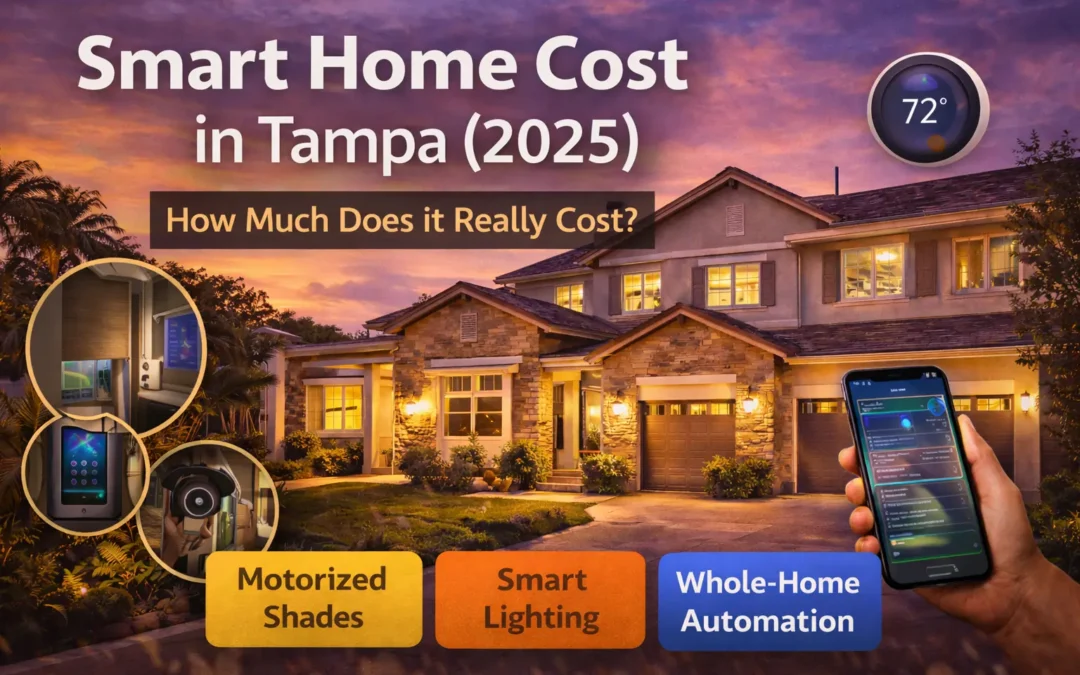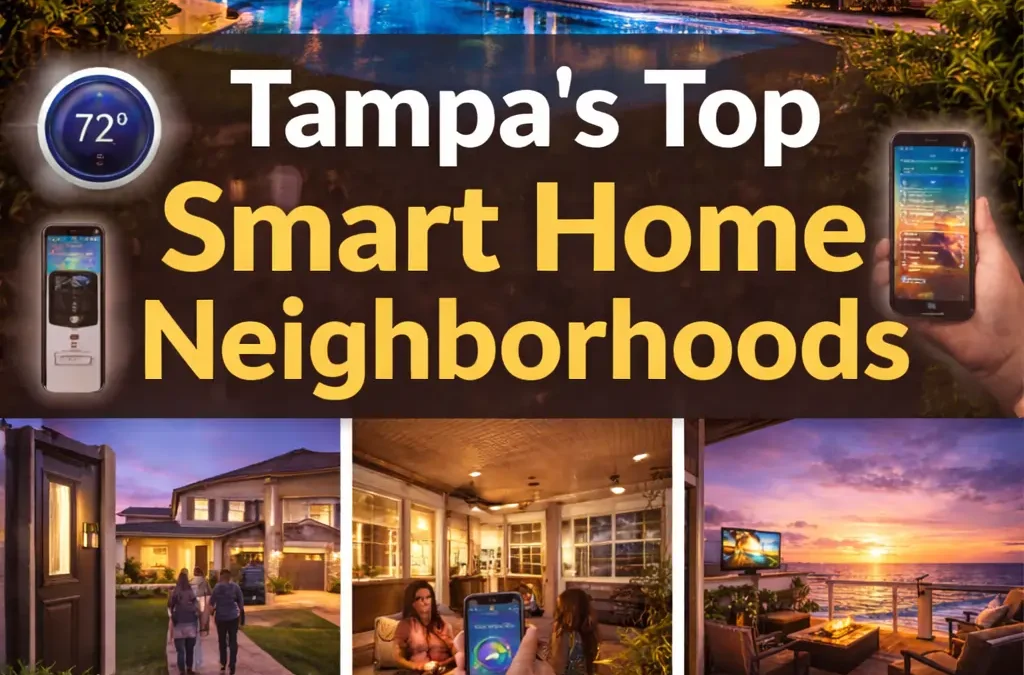When someone dips their toes into the world of automation, their smart home cost is often at the forefront of their mind. As a premier home automation provider in Tampa Bay, people ask Hive this question during every single project.
Having solid information about the cost of home technology is paramount to making an informed buying decision. Investing in home technology is a lot like buying a car. How much does a car cost? It depends. A cursory glance at any car lot shows vehicles priced anywhere from a few thousand to well over $100k.
What makes the price vary so much? It comes down to several factors unique to what you want in your product. Leather seats or polyester? High-tech Bluetooth or classic radio? How important is energy efficiency?
Like the car lot, home technology follows the same pattern. By spending some time figuring out what drivers are most significant to you, frustration is far less likely to ride shotgun. What are the automated home equivalents of car features like leather seats, power windows, and entertainment systems?
Below, we break down five critical factors that affect your smart home cost.
1) Your Home
Think about where you live. Are you building a new home or trying to retrofit an existing one? How old is your home? How many rooms are you outfitting? These factors impact your system’s complexity and determine how we pull wire and the number of wireless access points you will need.
It can impact Wi-Fi, security, and other technology systems that need a solid network to work well. Older homes and complex retrofit solutions could increase the labor costs associated with the project.
From the get-go, it’s imperative to decide if you want a smart home or smart tech. Are you considering a single Ring doorbell or an extensive security/alarm system? Want a surround sound system or a full home theater? What if you could walk into your home, say a simple, one-sentence command, and have your house completely change?
The lights dim, shades come down, and your favorite Spotify playlist plays through your speakers in a matter of seconds. Knowing what devices you want in your smart home will help determine your budget long before signing any papers.
Many companies, like Hive, offer consultations. Designers travel to your house and determine alongside you where certain systems fit best. This service helps you immensely in your home automation journey.
2) Price or Service?
What was the last restaurant you visited? Was it fast food or fine dining? Much like a restaurant, you get what you pay for and it’s not a matter of one being better than the other.
Many restaurants are unique and cater to different audiences. Heck, often restaurants cater to the same audience depending on the time of day. Services like Geek Squad and Amazon cater to price-conscious clients but don’t deliver high-level service. Companies like Hive focus on concierge-style service which tends to spend more time with customers. Hence they tend to be more expensive than their fast-food counterparts.
Are you a Do It Yourself type or a Do It For Me type? If you’re the first one, then you’ll save a ton of money doing it yourself. If you have a tech background or a passion for our industry, it could be a lot of fun! Think you lean more towards the second? Want to speed up your timeframe and feel more confident in the gear equipment installed in your home? Then hiring a professional might be a smart choice.
3) Reliability
You can buy an Internet router for $50 or $2,000. What’s the difference? Reliability. How important is uptime to you? If you live in a world where downtime will cost you money, consider paying more upfront for better gear. It will last you longer and produce fewer headaches.
Not as concerned with uptime? Rolling the dice might be worth it. A common scenario we see is clients using indoor TVs on a covered outdoor porch because they don’t want to spend the extra 30% for an outdoor-rated TV.
It all comes down to the services you want. A single smart LED lightbulb can cost anywhere from $10 to $80 depending on the brand. But, top-rated LED bulbs can last up to 40,000 hours making them incredibly energy efficient!
Research is vital in preparing for a smart home purchase. There’s nothing worse than rolling the dice and regretting a buying decision down the line. Time spent comparing devices will make you a more confident and knowledgeable consumer.
On Hive’s blog page we’ve compared many smart home gadgets like AI devices, programming software, and security systems.
4) One Smart Home App vs. Multiple Apps
This is a big one. Do you want a single app/control system from a company like Crestron, Control4, Savant, or others who combine your home tech onto a single platform? What if you don’t mind having separate apps on your smartphone that you switch between depending on your needs?
This decision could drive the price of your system up or down as much as 30%. Give this some serious thought before talking to any home technology professionals. There aren’t any right answers here (contrary to what the manufacturers will tell you).
5) Bleeding Edge vs. Proven Technologies
If you want the latest and greatest display technology as soon as it comes out, prepare to shell out big bucks as an early adopter. The tech world is full of first-to-market gadgets, vying to be brighter and shinier than all the others.
The industry has been doubling computing speeds every 18 months since the early 70s. That means technology gadgets are developing at an accelerated rate. This makes them frightfully expensive when launched and insanely cheap over time as they mature.
Take personal assistant AI for example. Apple’s Siri was at the forefront of the industry when it launched in 2011. Siri was exclusive to iPhone 4S for $299. People scrambled to stores to get their hands on what turned out to be a lackluster product.
In her first iteration, Siri struggled with voice recognition and limited integrations. It plummeted behind emerging competitors. Now consumers can find a wealth of personal AI’s in a variety of products for their home and personal use.
Siri has advanced over the years and has become a staple of Apple products. But the consumers who waited in line for hours ended up disappointed and searching for a better AI program.
Every technology category has a point where the technology gets out of the way if you’re willing to wait. Let the market test all your gear and clear winners will arise organically.
So How Much Does A Smart Home Cost?
The cost of a smart home is a challenging question with many variables. Our best advice is to research what products you want and how they would benefit your smart home installation.
Hive offers free consultations where a designer will sit down with you and discuss every aspect of your home automation. This includes programming options, wiring versus wireless access points, and optimal device locations.
You can reach out to schedule your consultation through our contact page, or call us at (813) 575-4483. Check out our Youtube Channel for more detailed looks into the home automation process.





